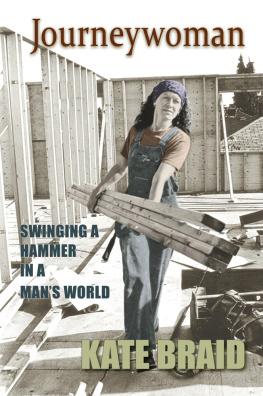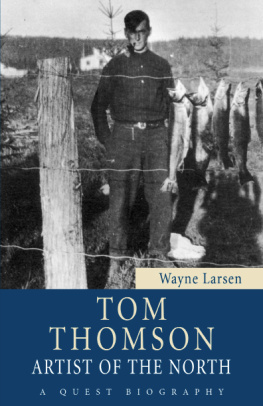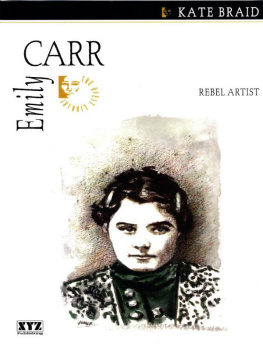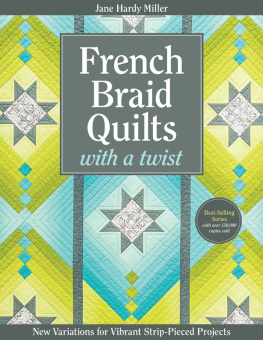Journeywoman
Swinging a Hammer in a Man's World
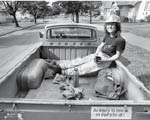
Kate Braid
Caitlin Press
Copyright 2012 Kate Braid
First print edition 2012 by Caitlin Press
All rights reserved. No part of this publication may be reproduced, stored in a retrieval system or transmitted, in any form or by any means, without prior permission of the publisher or, in the case of photocopying or other reprographic copying, a licence from Access Copyright, the Canadian Copyright Licensing Agency, .
Caitlin Press Inc.
8100 Alderwood Road
Halfmoon Bay, BC V0N 1Y1
www.caitlin-press.com
Edited by Barbara Pulling.
Text design by Vici Johnstone.
Cover design by Pamela Cambiazo.
Cover photo by Dan Scott, the Vancouver Sun.
Epub by Kathleen Fraser.
Caitlin Press Inc. acknowledges financial support from the Government of Canada through the Canada Book Fund and the Canada Council for the Arts, and from the Province of British Columbia through the British Columbia Arts Council and the Book Publishers Tax Credit.


Library and Archives Cataloguing in Publication
Braid, Kate, 1947
Journeywoman: swinging a hammer in a man's world / Kate Braid.
ISBN 978-1-894759-87-8
1. Braid, Kate, 1947-. 2. Women carpentersBritish
ColumbiaBiography. I. Title.
PS8553.R2585Z474 2012 694.092 C2012-903332-4
Every act of becoming consciousis an unnatural act.
Adrienne Rich, The Phenomenology of Anger
Im frightened all the time. Scared to death.
But Ive never let it stop me. Never!
Georgia OKeeffe
Does the flower know
Does it find itself a meadow
And open to whatever comes
And open to whatever comes
And open to whatever comes
Marilyn Bowering, Satin Flower
This book is for all the blue collar women
especially in memory of Jacqueline Frewin, carpenter,
Carlyal Gittens, tile-setter and brick layer,
and my two aunts, Kathleen Coates and Kelly Pryde,
Rosies both
for my mother, Mary Elizabeth Braid
and in memory of my father, Harry Braid
with love.
Contents
1
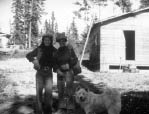
dancing with lumber
Watch out!
Someone jerks my armhardand as I catch myself, I glimpse Janets mouth shaped into a perfect soundless scream. Beside her, the forklift operator screeches to a halt, his back tire inches from me. His face mimes surprise and apology as Tom lets go of my arm and gestures for me to flip up my brand new ear muffs. I can hardly hear over the screech of saws.
Watch out for the forklift!
I nod, shaken, as Tom carries on, pointing up to where a set of rattling black chains, wide as a bed, divides above us. I feel thunder in my chestthe clash and groan of metal, scrape of lumber, howl of sawsand a smell so sharp and strong, its like walking through Buckleys Cough Medicine. Soon, Ill learn its the smell of thousands of board feet of freshly cut lumber.
Grade A material, Tom is screaming into my exposed ear, stays up top! He waves at a guy pushing buttons on a machine above us and to our left. I order myself to pay attention; hes telling us how to do this job. Rejects down here! A small white feminine hand appears out of the plywood shack above us and to our right. Graders shack! Tom screams. The hand pushes logs off the top chain down to the lower one, where they fall in a clatter in front of Janet and me. Our job will be to pile these rejects on carts so the forklift can load them into boxcars.
This should be easy.

Janet and I had met a few months earlier, at an International Womens Day celebration in Vancouver. When someone had asked about my plans for fall, I said I wanted to go back to university and for that, I needed a chunk of money, fast. When they asked, How are you going to get it? I said, Up north. Actually, until the words came out of my mouth, I had no plan at all, but in 1975, whenever a guy wanted money in British Columbia, he went up northto Kitimat, Smithers, Prince Georgeand came back with pocketfuls. It was boom days in northern BC; trees were being cut as fast as loggers could topple them, and dams, roads, mills, whole towns were popping up. If a man could earn big money up north, I suddenly thought, why couldnt I?
A British accent over my left shoulder chimed, Me too. It was Janet, and I was in luck. Shed taught in BCs north for two years, and exotic words like Telkwa, Nass, Kitwanga, now rippled off her tongue as she told me the names of people she knew, places we could stay. Best of all, the words included places we might work. Sawmill, she said. Fish plant. Pulp mill. It never crossed my mind to ask if they hired women in sawmills. Instead, I phoned my mum and dad to tell them I was going north this summer to work. I was vague about the details.
We shopped at an army surplus store on East Broadway for what Janet called necessities: plates, cutlery, a wallet-sized silver blanket (Developed by NASA for Outer Space!), sleeping bags, steel-toed boots and, for me, an ancient Trapper Nelson pack, the kind made of green canvas with a wood frame and leather straps. A few weeks later, Trapper Nelson at my side, Janet and I were standing at the on-ramp to Highway 1 with our thumbs out.
The world looks bigger from the back of a pickup truck. Heading east from Vancouver, past the town of Hope, then north, the country was no longer the steep up-and-down, brilliant greens of the west coast; it was long flat rolling hills, soft browns and the smell of something sweet.
Sage, Janet said.
The pickup dropped us in downtown Williams Lake. I was busy ogling store windows full of cowboy boots and Stetson hatsas foreign as haute couture in Pariswhen an old man walked by.
Howdy.
They even spoke a foreign language. There was a sawmill in this town, and Janet used the restaurant phone to ask if they needed any help. Her face told me the answer. We picked up our packs, headed back to the highway, and for the next two weeks applied at every sawmill, paper mill and fish processing plant between Williams Lake and Prince Rupert. After twenty-eight years of living in cities and working in offices, it felt odd to talk to bosses called foremen who wore blue jeans instead of a suit. After each foreman took one look and said, Sorry, girls, we moved on to the next. But when we got to Prince Rupert, to the coast, wed turned around and started back toward Prince George in the diminishing hope that wed somehow missed a place, that one of those foremen might change his mind. So far wed only spent money, and it was almost June.
Finally, a truck driver told us hed heard Canadian National Rail was hiring line crew at Hazelton, to lay track. We had no idea what laying track meant, but by now we were desperate. The trucker let us off at the Hazelton exit and pointed north. Janet and I walked up a gravel track and reached a trailer marked CNR just as a man pulling on his baseball cap stepped outside. As he brushed past he said amiably, Looking for work, girls?

